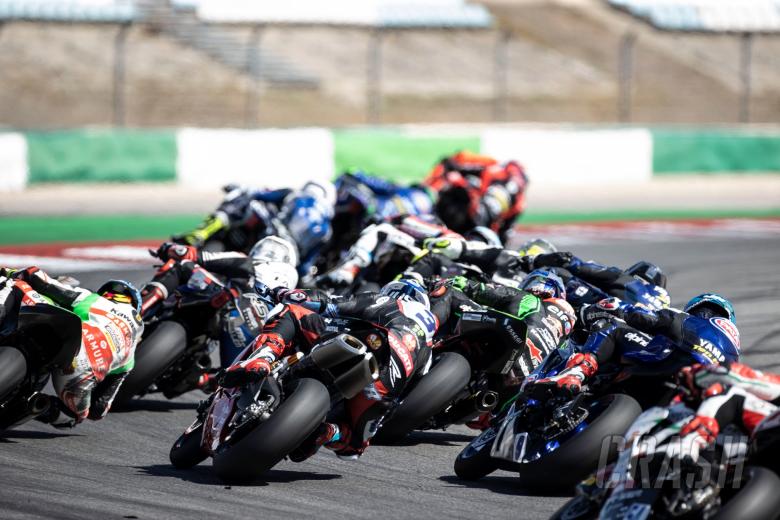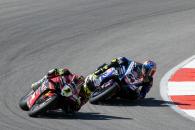Fears of teams leaving WorldSBK behind some of the new regulations


WorldSBK Executive Director Gregorio Lavilla has admitted fears of teams wanting to leave the series played a role in the new technical regulations.
WorldSBK will have various new technical regulations implemented for the 2024 season, one of which includes fuel tank capacity and fuel flow control.
This means a fuel capacity limit of 21 litres will be required for every team, which Lavilla believes is one of the reasons why it will be harder for specific teams to be considerably quicker in terms of top speed compared to others.
- Official: Andrea Iannone joins GoEleven Ducati for 2024 WorldSBK season
- Explained: Major WorldSBK technical changes for 2024
“There’s a track and you need to brake and accelerate, so maybe you’re going faster around the track if you make a bike that accelerates more and has better rideability and more grip,” said Lavilla.
“You need to combine the show being done in a correct way, safely enough and one that challenges all participants. Everyone needs to wake up and think they can win. If you lose that, you lose the competition and then even the ones winning will leave the competition because there is no reward with that victory.
“This is the concept that everyone needed to understand. Our job was to convince the guy that only has a project in mind to make his bike better to take him out of that scope, and say, ‘think a bit about the wider’; this was the challenge.
“When you need to convince people, you need to take them out of their comfort zone which, for the winning ones, is to not touch anything.
“Any manufacturer wants to win races like they did in our last race at Portimao. If we do nothing, maybe someone will leave. If others left, then the winning ones probably would too as they’ll say the Championship has no challenge and it’s easy to win.
“The best way is for a manufacturer to win but having difficulties; a win is more rewarding when you have to sweat it out until the last corner.”
Another rule change, and one that is a considerable one at that is the new minimum bike weight.
The minimum bike weight will be equal for everyone at 168kg, which should allow taller and therefore heavier riders to be competing on a more level playing field.
“The minimum bike weight is equal for everyone at 168kg but the difference in riders can be 30kg from the heaviest to the lightest,” began Lavilla.
“It’s never been intended in our sport to add 30kg of ballast to the lightest. In motorsport, the majority of ballast which is accepted ranges from 8kg to 10kg; we understand that with the machinery which is already built to a certain weight, adding 10kg is something huge.
“Unanimously, all manufacturers have reached an agreement and that is going to be the minimum bike weight and a reference rider weight of 80kg with all race gear on. Whoever is below that reference will have 0.5 per kilogram added.
“In an average of 80kg, some of the lightest riders will have to add 5-6kg (depending how much less they are to 80kg) with the 0.5 ratio reference.
“This is a new way in Superbike, to not have a fixed, defined number, so that over the years, the reference for weight and what to add can be adapted accordingly, but the rule is already there.
“From a production-based machine, in WorldSBK, we need to have some tools in order to balance certain things. Everybody understands that close racing is best for our sport, as well as trying to cap certain performance in the future for rider safety.
“A restriction on fuel, the RPM limit removal, the combined weight etc… these challenges are huge and I am so happy that we have all agreed; everyone will have their own challenge but it’s the best way to go.”



